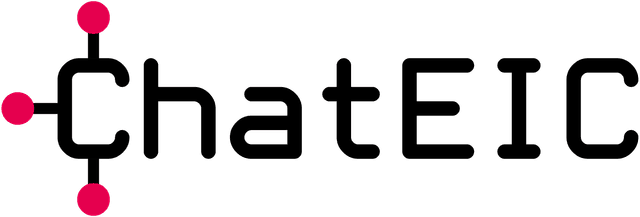
What Types of Industries Receive Funding?
The detailed topic descriptions can be found here. When you are unsure if a specific topic applies to your project, please read the detailed description carefully. To gain an overview of the topics, continue reading.
To find out if your company can receive funding by the EU, please read Can My Company Receive Funding from the EU? For general rules on how to increase the chances of your project, please read How To Improve Your Chances of Getting Funded.The Specific Topics
The Horizon 2020s SME Instrument funds a great variety of industries and has established 13 topics, namely:
01: Open Disruptive Innovation Scheme
"Focus will be on companies proposing disruptive [Information and Communications Technology (ICT)] concepts, products and services applying new sets of rules, values and models which ultimately create new markets (e.g. by tackling non-consumption) or disrupt existing markets."
02: Accelerating the uptake of nanotechnologies advanced materials or advanced manufacturing and processing technologies by SMEs
"The goal is to create added value by creatively combining existing research results with other necessary elements, to transfer results across sectors where applicable, to accelerate innovation and eventually create profit or other benefits."
03: Dedicated support to biotechnology SMEs closing the gap from lab to market
"SMEs working in the field of industrial biotechnology and ideas/concepts involving the use of systems and/or synthetic biology are particularly invited to apply for funding."
04: Engaging SMEs in space research and development
"It is considered that actions in the areas of applications, especially in connection to the flagship programmes Galileo and Copernicus, spinning-in (i.e. application of terrestrial solutions to challenges in space) and the development of certain critical technologies could be adequately suited for this call."
05: Supporting innovative SMEs in the healthcare biotechnology sector
a) Clinical research for the validation of biomarkers and/or diagnostic medical devices
b) Cell technologies in medical applications
06: Accelerating market introduction of ICT solutions for Health, Well-Being and Ageing Well
"The challenge is to help overcome the current gaps in exploitation of promising research results in ICT for Health, Well-being and Ageing well and to stimulate increased availability and market uptake of relevant ICT products and services"
07: Stimulating the innovation potential of SMEs for sustainable and competitive agriculture, forestry, agri-food and bio-based sectors
"SMEs can play a crucial role in developing resource-efficient and costeffective solutions to secure sufficient supplies of safe, healthy and high quality food and other bio-based products, by developing productive, sustainable and resource-efficient primary production systems, fostering related ecosystem services and the recovery of biological diversity, alongside competitive and low-carbon supply, processing and marketing chains. "
08: Supporting SMEs efforts for the development - deployment and market replication of innovative solutions for blue growth
"SMEs contribution to the development of the 'Blue Growth Strategy' (COM (2012) 494) can be significant in particular in the fields of marine biotechnology, fisheries, marine and fresh water aquaculture (including production and processing of feed and food), marine litter prevention. "
09: Stimulating the innovation potential of SMEs for a low carbon and efficient energy system
- Reducing energy consumption and carbon footprint by smart and sustainable use,
- Low-cost, low-carbon electricity supply (including renewable energy as well as carbon capture and storage and re-use),
- Alternative fuels and mobile energy sources,
- A single, smart European electricity grid,
- New knowledge and technologies, and Robust decision making and public engagement
10: Small business innovation research for Transport and Smart Cities Mobility
"SMEs are pivotal for delivering the innovations needed for greater sustainable and smarter mobility, better accessibility and logistics serving business and citizens, and thus higher economic growth, in a context where the majority of population lives in urban and urbanised areas."
11: Boosting the potential of small businesses in the areas of climate action, environment, resource efficiency and raw materials
"This topic is targeted at all types of eco-innovative8 SMEs in all areas addressing the climate action, environment, resource efficiency and raw materials challenge – including but not restricted to the 2016-2017 strategic priorities of systemic eco-innovation and circular economy, nature-based solutions, climate services, sustainable supply of raw materials, harnessing GEOSS Earth observation data, cultural heritage for sustainable growth, and water – focusing on SMEs showing a strong ambition to develop, grow and internationalise. "
12: New business models for inclusive, innovative and reflective societies
"A change of paradigm from ownership to access, from individual consumption to shared functionalities can be applied in several sectors benefiting from digital technologies and ensuring more sustainable lifestyles to EU citizens particularly in cities."
13: Engaging SMEs in security research and development
"The actions under this topic should cover any aspect of the Specific Programme for "secure societies - protecting freedom and security of Europe and its citizens""
-----
General information on the success rates for the specific topics can be found in The Success Rate For Receiving Government Funding.These tips are not only useful for European startups, professional writers, consultants and Small and Medium-Sized Enterprises (SME) but are generally recommended when writing a business plan or investor documents.
Deadlines: Post-Horizon 2020, the EIC Accelerator accepts Step 1 submissions now while the deadlines for the full applications (Step 2) under Horizon Europe are listed below. The Step 1 applications must be submitted weeks in advance of Step 2. The next EIC Accelerator cut-off for Step 2 (full proposal) can be found here. After Brexit, UK companies can still apply to the EIC Accelerator under Horizon Europe albeit with non-dilutive grant applications only - thereby excluding equity-financing. Switzerland has resumed its participation in Horizon Europe and is now eligible for the EIC Accelerator.
EIC Accelerator Step 1 Deadline 2025
Contact: You can reach out to us via this contact form to work with a professional consultant.
AI Grant Writer: ChatEIC is a fully automated EIC Accelerator grant proposal writer: Get it here.
EIC Accelerator: EIC Accelerator delivers flexible funding options including blended finance (€2.5M grant + €0.5M-€10M equity), grant-only (up to €2.5M), or equity-only arrangements for scale-up and market deployment of breakthrough innovations. The initiative targets SMEs, start-ups, and small mid-caps with up to 499 employees. Technology areas include Biotech, Engineering, Artificial Intelligence, Energy, Quantum, Aerospace, Advanced Materials, and Semiconductors. Get Started
EIC Pathfinder: EIC Pathfinder delivers up to €3 million for Open calls and up to €4 million for Challenge-based calls to support early-stage research and development with proof-of-principle validation. The initiative requires research consortia with a minimum of 3 partners from 3 different countries, including universities, research organizations, and SMEs. Primary technology focus areas include Health/Medical, Quantum Technologies, AI, Environmental/Energy, and Advanced Materials. Get Started
EIC Transition: EIC Transition delivers up to €2.5 million in funding to overcome the 'valley of death' gap between laboratory research and market deployment, emphasizing technology maturation and validation. The initiative supports single legal entities or small consortia of 2-5 partners including SMEs, start-ups, spin-offs, and research organizations. Key technology domains include Health/Medical Technologies, Green/Environmental Innovation, Digital/Microelectronics, Quantum Technologies, and AI/Robotics. Get Started
EIC STEP Scale-Up: EIC STEP Scale-Up delivers significant equity investments of €10-30 million for established deep-tech companies prepared for hyper-growth and large-scale expansion. The initiative targets SMEs or small mid-caps with up to 499 employees who have obtained pre-commitment from qualified investors. Primary focus areas include Digital & Deep Tech (Semiconductors, AI, Quantum), Clean Technologies for Net-Zero objectives, and Biotechnologies. Get Started
EIC Pre-Accelerator: EIC Pre-Accelerator represents a pilot initiative delivering €300,000-€500,000 in funding for early-stage deep-tech development and preparation for the EIC Accelerator program. This program is exclusively accessible to single SMEs or small mid-caps from 'Widening countries' to foster regional innovation development. The initiative encompasses deep-tech innovations across physical, biological, and digital domains. Get Started
EIC Advanced Innovation Challenges: EIC Advanced Innovation Challenges represents a new pilot initiative delivering €300,000 (Stage 1) and up to €2.5 million (Stage 2) for breakthrough deep-tech innovations through ARPA-style staged funding mechanisms with integrated demand-side engagement. This initiative targets single entities or small consortia (2-3 partners) including SMEs, start-ups, and research organizations. Primary focus areas include Physical AI for autonomous robotics applications and New Approach Methodologies (NAMs) for animal-free biomedical testing, with TRL 4 entry requirements and demonstrated end-user commitment. Get Started
Eureka Network: The Eureka Network delivers various international collaborative R&D initiatives such as Network Projects, Clusters, Eurostars, Globalstars, and Innowwide, providing funding from €50K to €6.75M per project based on the specific initiative. This network emphasizes market-driven innovation and deep-tech advancement across multiple technology sectors including ICT/Digital, Industrial/Manufacturing, Bio/Medical Technologies, Energy/Environment, Quantum, AI, and Circular Economy. Eligible participants include SMEs, large enterprises, research organizations, universities, and startups, with Eurostars particularly focused on R&D-performing SMEs. Get Started
Eurostars: Eurostars represents a joint EU-Eureka initiative delivering €50K-€500K for international R&D collaboration specifically led by SMEs. The program adopts a bottom-up approach, accepting projects from all technology fields without predefined thematic restrictions. R&D-performing SMEs must lead the consortium and demonstrate significant R&D activities. Get Started
Innovation Partnership: Innovation Partnership enables collaborative innovation between public and private sectors with typical funding of €1-5 million per project. The initiative supports cross-sectoral strategic technologies through public-private partnerships and consortia. Projects concentrate on addressing societal challenges through collaborative innovation approaches. Get Started
Innovation Fund: The EU Innovation Fund delivers substantial funding of €7.5 million to €300 million for large-scale demonstration of innovative low-carbon technologies. The initiative targets clean energy, carbon capture, renewable energy, and energy storage technologies to accelerate the transition to a low-carbon economy. Eligible participants include large companies, consortia, and public entities capable of implementing large-scale demonstration projects. Get Started
Innovate UK: Innovate UK delivers various programs with funding ranging from £25K to £10M depending on the specific initiative, supporting business-led innovation, collaborative R&D, and knowledge transfer. The organization funds projects across all sectors with particular emphasis on emerging technologies and supports UK-based businesses, research organizations, and universities. Programs are designed to drive economic growth through innovation and technology commercialization. Get Started
Industrial Partnership: Industrial Partnership delivers €2-10 million in funding for industrial research and innovation partnerships focusing on manufacturing, industrial technologies, and digital transformation. The initiative supports industrial consortia and research organizations in developing collaborative solutions for industrial challenges. Projects aim to strengthen European industrial competitiveness through strategic partnerships. Get Started
LIFE Programme: The LIFE Programme delivers €1-10 million in funding for environmental protection, climate action, and nature conservation projects across the European Union. The initiative supports environmental technologies, climate adaptation strategies, and biodiversity conservation initiatives. Eligible participants include public authorities, private companies, NGOs, and research institutions working on environmental and climate challenges. Get Started
Neotec: Neotec represents a Spanish initiative delivering €250K-€1M in funding for technology-based business creation and development, supporting the growth of innovative Spanish SMEs and start-ups. The program covers all technology sectors and aims to strengthen Spain's technology ecosystem. Funding is specifically targeted at Spanish technology-based SMEs and start-ups to enhance their competitiveness and market presence. Get Started
Thematic Priorities: EU Thematic Priorities encompass various programs aligned with EU strategic priorities including green transition, digital transformation, health, and security initiatives. Funding amounts vary based on the specific program and call requirements, with projects designed to address key European challenges. Applicant eligibility varies by specific program and call, with different requirements for different thematic areas. Get Started
Any more questions? View the Frequently Asked Questions (FAQ) section.
Want to see all articles? They can be found here.
For Updates: Join this Newsletter!
